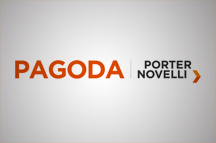 Universal suffrage is a right Scottish people have enjoyed for almost a century with parliaments, trade unions, religious leaders and civic movements defending and enhancing the democratic powers of the voters. Yet, despite the most engaged Scottish electorate for a generation, if not ever, there are indications that we could see a decline in the size of the electorate.
Universal suffrage is a right Scottish people have enjoyed for almost a century with parliaments, trade unions, religious leaders and civic movements defending and enhancing the democratic powers of the voters. Yet, despite the most engaged Scottish electorate for a generation, if not ever, there are indications that we could see a decline in the size of the electorate.
For the first time since 2009 the Scottish electorate across local, Scottish, UK and European parliamentary elections has decreased. With 4.03 million people registered for the upcoming Holyrood election as of the start of December last year, a decline of 100,000.
It may be that people just hadn’t got round to registering by then, and will still do so before the deadline on 18 April. Or it may be due to the change in the way to register – the Individual Electoral Registration – the new system which requires everyone to register individually rather than as a household unit.
However, there is one factor that could contribute to the drop in voters come ballot day in May – electoral fatigue. Thinking back, for the past three to four years the Scottish people have had nothing but ballots as the key talking point in politics. Campaigning for the 2014 independence referendum was the start of this and that vote produced a staggering 84.59% turnout, making Scottish politics one of the most popular conversation topics not only in here but throughout the UK, Europe and wider world.
Since then we’ve had the 2015 General Election and we’re now looking ahead to the Holyrood elections and EU referendum vote. There hasn’t been any break in political rhetoric since the start of the independence campaign and, while those of us working in politics might welcome such dialogue, your average voter may not. There is also potential that some of the electorate, especially those who voted for the first time in the independence referendum, are disillusioned about the power their vote has to change Scottish politics.
This fall in registered voters is, unfortunately, happening at the worst possible time as it has helped inform proposals to reduce Scottish representation at Westminster by six seats, from 59 to 53.
Political parties, the media, businesses and civic society should all have a role encouraging the public to vote. Whether someone votes for a political party or spoils the ballot paper, it’s critical that everyone is counted and they have the chance to take part in shaping Scotland’s future.












